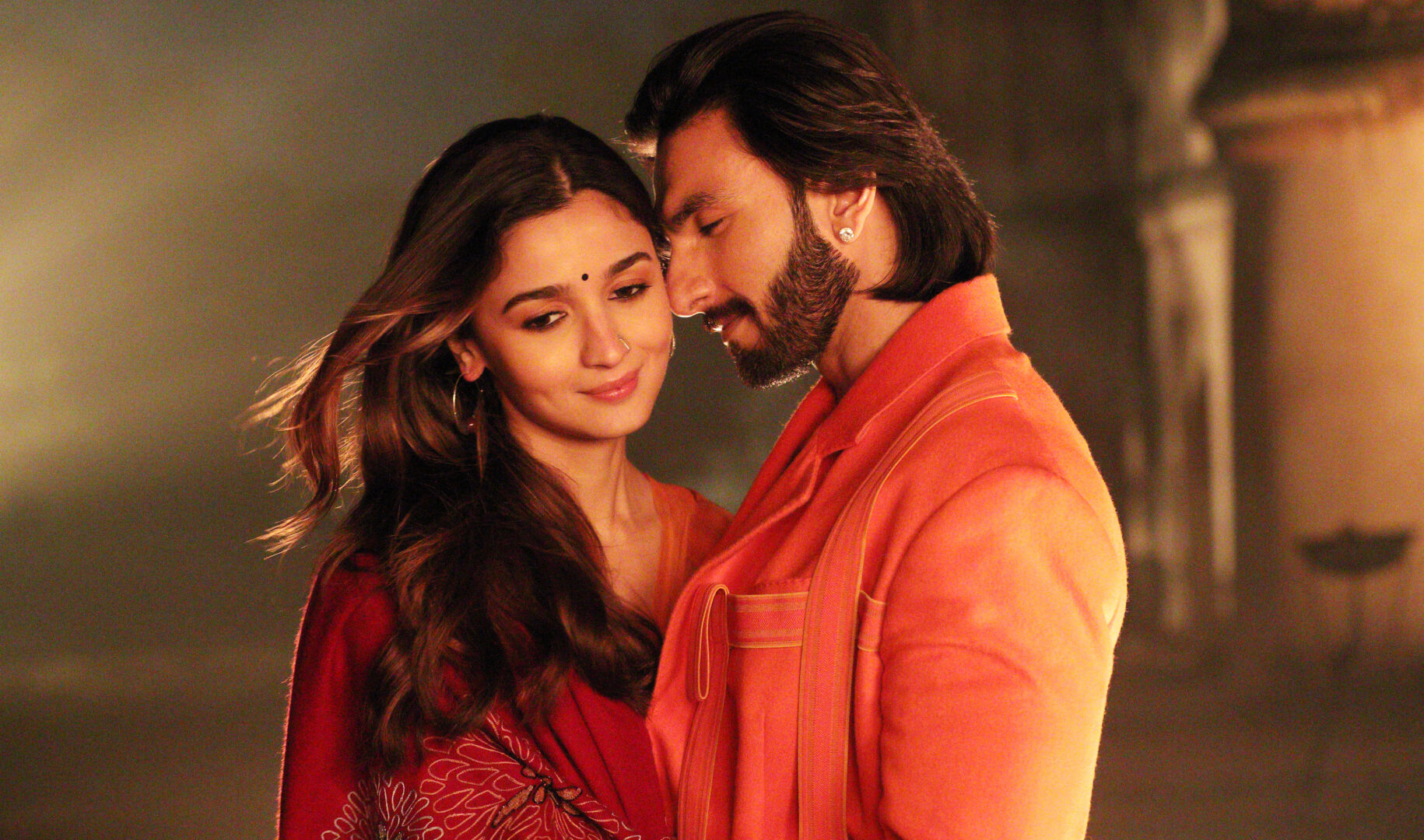Hindi Movie Review: Rocky Aur Rani Kii Prem Kahaani soars on infectious characters, sputters on sloppy politics

There is such an intoxicating energy to the first half – and especially the first third – of Rocky Aur Rani Kii Prem Kahaani (in English, “Rocky and Rani’s Love Story”) that it’s damn near impossible to resist in the early going. Telling an age-old story of opposites attracting with goofy aplomb, this latest directorial effort from megaproducer Karan Johar feels like a Bollywood-infused throwback to the golden era of early-2000s Hollywood rom-coms. With a seemingly effortless, high-energy style and two irresistibly charismatic lead performances by Ranveer Singh and Alia Bhatt, the film flies by until the intermission point.
Only at the movies are we willing to suspend disbelief to the extent that we buy into a romance between characters as seemingly mismatched as Singh’s Rocky and Bhatt’s Rani, but there’s something distinctly pleasurable about believing that such a pairing could actually happen. Or really, that these leads – so endearing but also so fabricated – could exist in the natural world. We meet the two characters in introductions so cheesy-delicious, they could sell them at Little Caesars. Rocky, an intellectually vacant but well-meaning Punjabi heir to a packaged laddoo fortune, romps around a club with a shirt that seemingly won’t button, while women of all ages drool at his feet. Rani, a bohemian-raised Bengali television journalist, takes down a chauvinist politician in an on-air interview that would have never been consented to in reality.
There are many ways that these characters, as written, could have both been entirely unlikable. Or, that audiences would have sided with the one who more closely aligned with their own politics and upbringing. But the leads somehow know how to make these personas click, transcending the stereotypes of the roles and endearingly twisting them to play up their unlikely chemistry together. Rocky is a complete moron – and yet, somehow Singh makes him both puppy-doggish and human enough that we like him anyway, and we understand why Rani would be interested in him despite her clear intellectual advantages. Rani could have easily come across as a pedantic feminist blowhard, but Bhatt gives her the tenderness and empathy to keep her from becoming just an ideological mouthpiece. It’s no surprise that Hollywood has come knocking for Bhatt: she is a screen presence to behold.
As Rocky and Rani’s love story progresses, the movie doesn’t short its large ensemble cast, either. Both characters’ families are fully developed, and this is just as much a story of clans clashing as it is of opposites attracting. Rocky’s wealthy, traditional household is not without its salacious secrets – including a never-discussed love affair that his grandfather (Dharmendra) once had with Rani’s grandmother (Shabana Azmi), as well as a secret side-hustle that his sister (Anjali Anand) has playing the financial markets, despite the family’s desperation to marry her off. Rani’s family is the picture of modern liberalism: her mother (Churni Ganguly) is an English professor and her father (Tota Roy Chowdhury) a professional Kathak dancer. While these characters are all designed to be archetypes to some degree, there are layers to them that make them consistently engaging.
From a production standpoint, filmmaker Johar (widely known in India as “KJo”), has spared no expense. The costumes and art direction are lavish for a contemporary-set film, even by Bollywood standards, and the dance numbers feel appropriately big. Manush Nandan’s cinematography is elegant and doesn’t descend into the cheap MTV aesthetic that has plagued Bollywood in recent years, with perhaps the intentional exception of Rocky’s club introduction in the number “Heart Throb” (used as the film’s online music video). The music, by Pritam, is not necessarily as memorable as it could have been overall, but the soundtrack boasts a truly catchy (and dazzlingly choreographed) early number in “What Jhumka?”, a solid signature ballad in “Tum Kya Mile,” and an electric character theme to introduce Rani.
What a crushing disappointment it is when the momentum dies soon after the midway point. The movie has a great tease heading into intermission: Rocky and Rani resolve to spend three months living with each other’s families – independently – to see if they can really handle one another for the rest of their lives. This scenario initially makes for a pretty amusing series of hijinks, like Rocky struggling to prepare his own coffee in his more independent new digs. But the film descends into self-important political lecturing awfully quickly, especially when it comes to Rani’s interactions with Rocky’s family. It’s not that any of this messaging is particularly controversial – especially for international audiences – but rather, that it turns the back half of the movie into a heavy-handed slog. Gone are both the creativity factor and the focus on the couple’s interpersonal dynamic that fuel the film early on. What feels effortlessly entertaining in the first half becomes bogged down by progressive sermonizing in the second.
Some of the messaging also seems poorly thought-through. The script bends over backwards to show “both sides” of the equation and suggest that not only are the backwards views of Rocky’s family an issue, but also that Rani’s parents’ negative opinions of conservatives keep them from giving their daughter’s new beau a fair chance. The gesture toward evenhandedness is admirable, but the resulting takeaway is convoluted: Are the filmmakers somehow equating the behavior of a family where abuse is a tolerated part of marriage with the strongly-held (and therefore potentially blinding) opinions of their counterpart family? There’s also a truly extraneous subplot about fat-shaming involving Rocky’s sister that is, well, fat that likely should have been trimmed from the runtime. It begins to feel like KJo – hardly seen as a filmmaker whose body of work is entirely unproblematic – is squeezing in every hot-button social issue he can, perhaps to atone for sins of the past.
Rocky Aur Rani Kii Prem Kahaani has been a much-needed hit for Bollywood at home, holding especially respectably week-over-week at the Indian box office. But it’s arguably been an even bigger hit in Western markets, which makes sense given its progressive political lens. Unfortunately, much like the biggest grosser of the year in the West, Barbie, the film’s social themes are nowhere near as thoughtfully constructed as its aesthetic and its performances. If it had just been a little bit more implicit and nuanced with its messaging, while sustaining the energetic high-wire act of its first half, Rocky Aur Rani Kii Prem Kahaani could have gone down as one of the best rom-coms in years. Hopefully Singh and Bhatt will team up again in the future for another try; they’re too good together not to.

